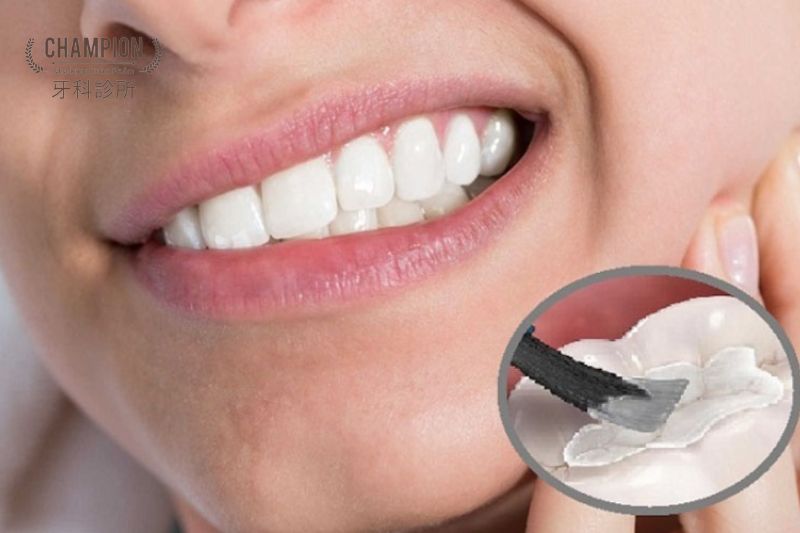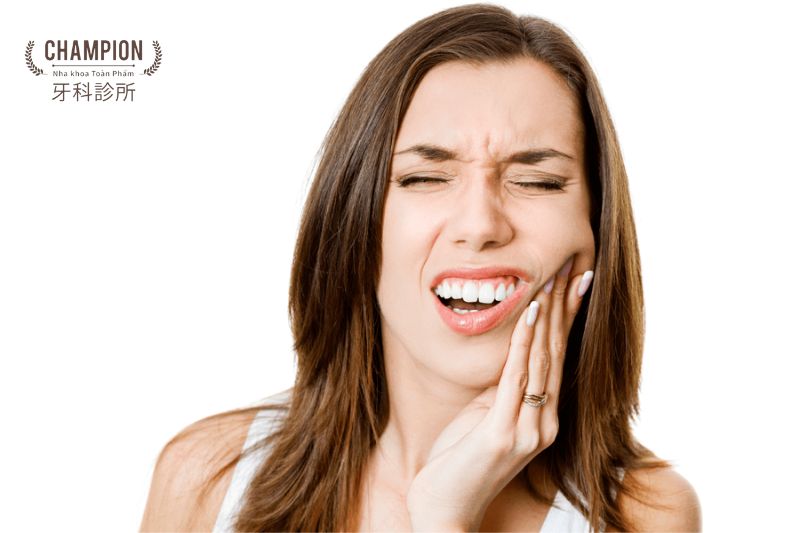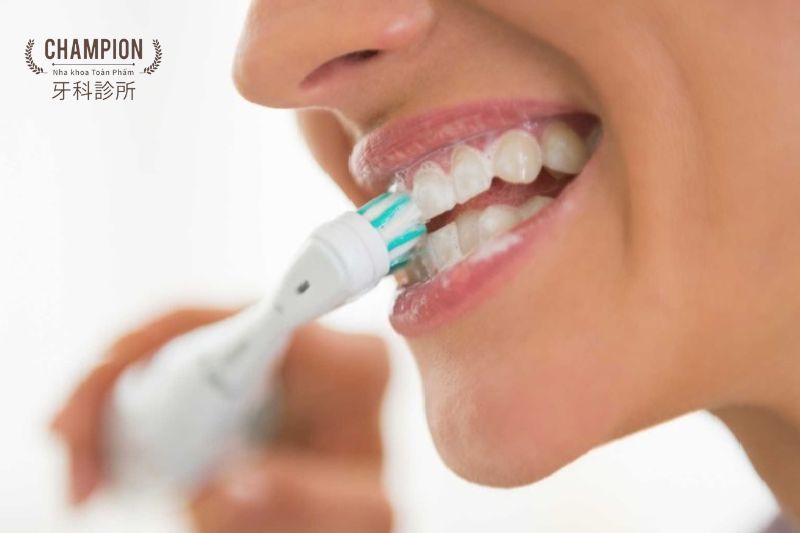Dental filling is a common dental procedure used to restore teeth affected by cavities, fractures, or breaks. However, after dental filling, some individuals may experience tooth sensitivity. So why do teeth become sensitive after undergoing a filling? Let's explore the details in the following article with Champion Dental.
Is the tooth more sensitive after a dental filling?
Dental filling is a common dental procedure that helps eliminate cavities and address structural damage. While this procedure brings many benefits to dental health, some people may encounter tooth sensitivity after the filling.
Immediately after a dental filling, the tooth surface may feel numb, itchy, or swollen. This can affect the ability to eat, speak, and swallow in the first few hours. However, these sensations often disappear when the anesthesia wears off. Nevertheless, during the adaptation period to the new filling, teeth may continue to be sensitive. Additionally, the type of filling material can also influence sensitivity. The use of gold, silver, composite resin, or porcelain can result in different experiences.
Tooth sensitivity after a filling often occurs when exposed to certain factors, including:
- Sudden pain may arise when consuming ice cream, hot or cold beverages.
- Teeth can become sensitive when cold air enters the gaps between teeth, especially when breathing through the mouth.
- Foods with sugar, sugary drinks, and acidic foods can trigger sensitive sensations.

Why are teeth sensitive after dental fillings?
There are several reasons leading to tooth sensitivity after dental fillings, including:
Worn enamel layer
The enamel layer plays a crucial role in protecting the nerve inside the tooth from external influences. When the enamel layer is worn due to the impact of acid from food, acidic beverages, or bacteria, the nerve becomes more susceptible, causing tooth sensitivity.
Incorrect bite alignment
If the filling is placed too high compared to other teeth, the pressure when biting may increase, causing pain and discomfort. Normally, the bite alignment will self-adjust during daily eating, but in cases where pain and discomfort persist, adjusting the filling is necessary.
Improperly fitted filling
If the filling is too thick or not in the right position, it can exert unwanted pressure on the nerve, leading to sensitivity. The choice of filling material also affects sensitivity, with some individuals reacting allergically to certain filling materials.
Oral diseases
Conditions such as gum inflammation, pulpitis, cracked teeth, or decay near the filling site can cause tooth sensitivity. Bacteria from these conditions can invade and stimulate the nerve, increasing sensitivity.
Tooth impaction
Tooth impaction is an infection in the nerve of the tooth, causing pain, throbbing, and tooth sensitivity. These symptoms may appear after trauma, cavities, or tooth cracks. Treatment depends on the degree of infection, ranging from gum cleaning and treatment to root canal surgery.
Pulpitis
Pulpitis may occur when a tooth is traumatized or cracked, stimulating the nerve inside and causing aching pain and numbness. Pulpitis treatment may involve root canal therapy to reduce the risk of infection and alleviate sensitivity.
Gingivitis
If the gums recede, the tooth's root may be exposed without the protective enamel layer, resulting in sensitivity upon contact. Treatment may include managing gingivitis and gum care to reduce sensitivity.

>> See more: Summary of 9 most effective and simple ways to treat molar tooth decay
How to address tooth sensitivity after dental fillings
Tooth sensitivity after dental fillings typically subsides within a few days to a few weeks. However, if the condition persists or worsens, it's advisable to consult a dentist for examination and treatment.
Some measures to reduce tooth sensitivity after dental fillings include:
- Avoiding stimulant factors: Refrain from consuming hot, cold, acidic, or sweet foods and drinks in the first few days after dental fillings.
- Using specialized toothpaste for sensitive teeth: Toothpaste designed for sensitive teeth contains ingredients that help reduce tooth sensitivity.
- Using mouthwash for sensitive teeth: Specialized mouthwash for sensitive teeth also helps alleviate sensitivity.
If tooth sensitivity after dental fillings persists or becomes severe, a dentist may recommend additional treatments such as:
- Applying a protective coating on the filling: A thin protective coating can be placed over the main filling to shield the nerve and reduce sensitivity.
- Dental filling adjustment: If the main filling is not fitting correctly, the dentist may adjust it to address tooth sensitivity.
- Crown placement: Crown placement is an effective treatment to overcome tooth sensitivity and enhance the aesthetics of the tooth.

Some considerations for caring for teeth after dental fillings include
- Gently brushing teeth: Brush your teeth at least twice a day for two minutes using a soft brush and fluoride toothpaste.
- Regular flossing: Regular flossing helps remove food and plaque buildup between teeth, preventing cavities and other oral diseases.
- Regular dental check-ups: Schedule dental check-ups every six months for a dentist to examine and detect oral issues early.
Conclusion
Tooth sensitivity after dental fillings can arise from various causes, and proper care along with guidance from a dentist is crucial to minimize this condition and ensure optimal dental health. If you are experiencing this issue, visit Champion Dental for an examination and the best treatment plan!
Vietnamese & English: (028) 5411-2295
中文: (028) 5411-2297 172 Nguyen Luong Bang, Tan Phu Ward, District 7, Ho Chi Minh City.
Fanpage: Champion Dental Clinic 牙科診所
Zalo: Champion Dental Clinic
Youtube: Champion Dental Clinic 牙科診所
 Champion Dental Clinic
Champion Dental Clinic



